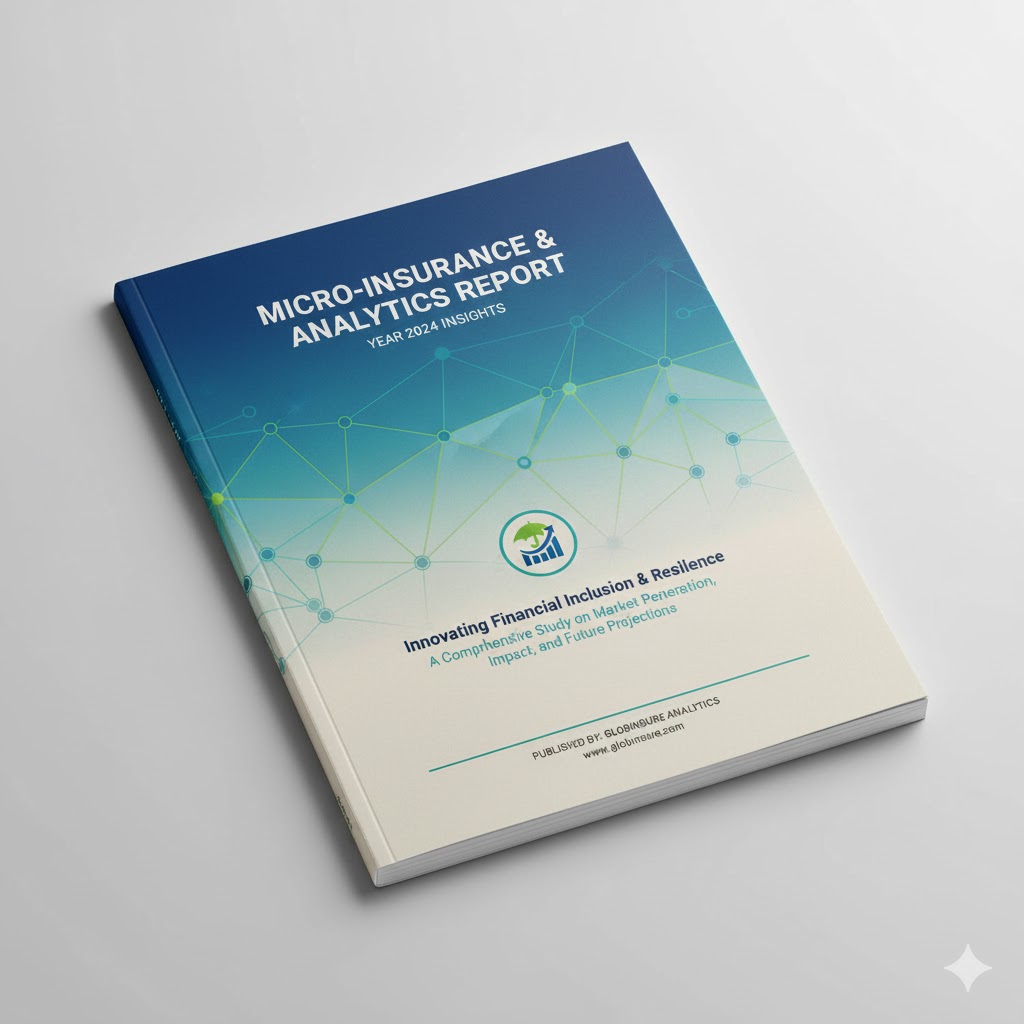Displaying 1 - 15 of 26

ACRE Africa provides micro-insurance products to strengthen farmer resilience
ACRE Africa partners with insurers to offer affordable index-based crop insurance to smallholder farmers. Uses weather stations and satellite rainfall data to trigger payouts automatically.
Date Issued
2021
Topics
Products
Region

Better Weather Protection for Tanzanian Farmers
One Acre Fund and Global Parametrics piloted an innovative weather-index microinsurance solution using the Water Balance Index for ~70,000 Tanzanian smallholder farmers. The parametric cover enabled timely payouts and improved resilience against drought and excess rain.
Date Issued
2021
Topics
Products
Region

Case Study: Through Rain or Drought, Crop Insurance Provides a Protective Umbrella for Us
ACRE Africa's crop index insurance enabled Kenyan smallholder farmers to recover from climate shocks. This pioneering weather-index product helped sustain productivity and manage agricultural risks by offering timely protection against drought and other climate-related threats.
Date Issued
2016
Topics
Region

Challenges of Rural Insurance in the Context of Climate Change: the Case of Soybeans
Product for low-income urban dwellers in flood-prone areas of São Paulo, offering quick post-disaster payouts.
Date Issued
2023
Topics

Climate insurance for coffee farmers
Blue Marble partnered with Nespresso to provide weather index insurance to coffee farmers. Automatic payouts based on satellite rainfall data. Coverage expanded to multiple countries.

COVID-19 and the Insurance Industry: Why a Gender-Sensitive Response Matters
COVID-19 and the Insurance Industry: Why a Gender-Sensitive Response Matters. This guidance note explores how the COVID-19 pandemic affected the gender gap in insurance access and services. It identifies four key areas where applying a gender lens can improve customer-centricity: operational practices, brand communication, product innovation, and new distribution channels. With practical insights from IFC's Women's Insurance Program, the paper offers a roadmap for insurers to better serve women during and beyond crisis periods.
Date Issued
2020
Region

DeRisking coffee in Vietnam: Piloting a Coffee Climate Protection Insurance scheme to enhance the capacity of smallholders and agribusinesses in coping with climate variability and change
Vietnam's Central Highlands – the world's largest Robusta coffee region – remains one of the country's poorest areas and is highly vulnerable to climate shocks. To build farmers' resilience, a Coffee Climate Protection Insurance (CCPI) pilot is providing smallholder coffee farmers with index-based insurance against drought, excessive rainfall, and extreme temperature, coupled with climate-informed agro-advisory services.
Date Issued
2022
Topics
Products
Region

Enhancing Agricultural Productivity through Yield Estimation Initiatives in Partnership with the Farm-to-Market Alliance
Details ACRE Africa & FtMA project in Kenya to improve crop index insurance using geo-mapped yield data and local training.
Date Issued
2024
Topics
Products
Region

Global Parametrics & One Acre Fund Provide Weather Protection for Tanzanian Farmers
One Acre Fund, a nonprofit that supports smallholder farmers, partnered with Global Parametrics to pioneer a new Water Balance Index protecting 70,000 farmers in Tanzania from drought and excessive rainfall. This index-based weather insurance enables fast, affordable payouts, strengthening farmers' resilience to a volatile climate.
Date Issued
2021
Topics
Products
Region

GREEN DELTA, BANGLADESH – The case for insuring women for a better tomorrow
The case for insuring women for a better tomorrow. Green Delta Insurance Company (GDIC), a private non-life insurer in Bangladesh, partnered with IFC and others to design targeted insurance solutions for women. This note explores why women represent a key growth segment, how GDIC tailored its approach for Bangladeshi women, and the lessons learned from implementing this gender-inclusive strategy in the local market.
Date Issued
2020
Products
Region

Innovative Index-Based Agriculture Insurance: Where hope meets possibility
A pilot index-based insurance product for rice farmers to mitigate flood-related risks and promote financial resilience.

INSULAR LIFE, PHILIPPINES – The case for insuring women for a better tomorrow
Insular Life, Philippines – This case study showcases how Insular Life (InLife), a leading life insurer and health maintenance organization in the Philippines, partnered with IFC and the Women Entrepreneurs Finance Initiative (We-Fi) to better serve Filipino women. Their gender-focused strategy positions InLife as both an inclusive insurer and an employer of choice for women. The report outlines their journey toward creating more accessible insurance solutions, workforce empowerment, and long-term impact on women's financial resilience.
Date Issued
2021
Products
Region

Making Access to Insurance Happen for People with Disabilities and Small Businesses and Micro-entrepreneurs
WFP piloted an inclusive weather-index insurance scheme for ~4,800 people in El Salvador, targeting women entrepreneurs and people with disabilities. The product enabled fast payouts during climate shocks and removed traditional credit-based enrollment barriers.

Making climate risk microinsurance work. Case Study: Green Delta Insurance Company (GDIC), Bangladesh
Making climate risk microinsurance work: Green Delta Insurance Company in Bangladesh. This case study explores the origin, design, and delivery of Green Delta's agricultural microinsurance program. It reviews pricing mechanisms, subsidy structures, operational challenges, delivery models, and real-world performance results. The analysis offers key lessons for building climate resilience through private-public partnerships in emerging markets.

Making climate risk microinsurance work. Case Study: Kenya Agriculture Insurance Program (KAIP) with APA, Kenya
Information on the Kenya Agriculture Insurance Program developed in partnership with APA Insurance. The overview includes pricing structures, government subsidy mechanisms, challenges in implementation, delivery models, and overall performance metrics. The case outlines key lessons learned from executing a national climate risk microinsurance scheme in a Sub-Saharan African context and provides insight into scaling agricultural resilience through public-private collaboration.
Date Issued
2021
Topics
Region
